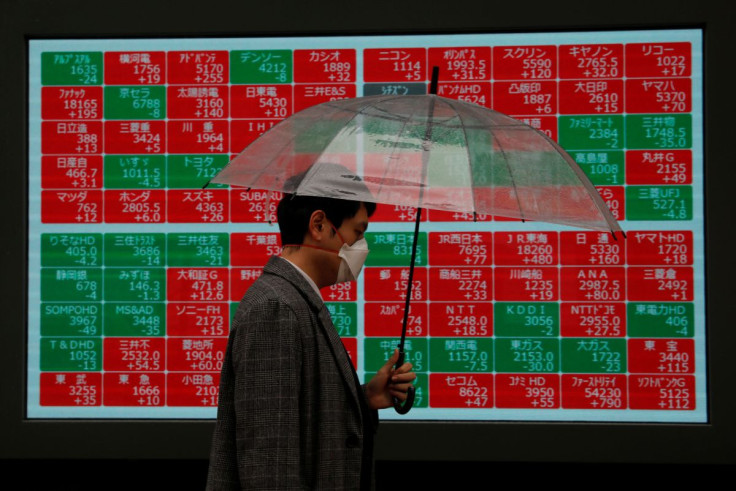Stocks Rebound From Inflation Selloff, But Head For 5th Weekly Fall

Stocks rose on Friday as investors clung to hopes the global economy would continue to grow despite the war in Ukraine and yet more evidence central banks will need to tighten policy fast to tame inflation.
Data on Thursday showed U.S. inflation at a four-decade high, prompting traders to raise their bets on rate hikes from the Federal Reserve beginning next week.
The Bank of England is also expected to tighten next week, especially after January's economic growth numbers came in stronger than expected on Friday.
A more hawkish than European Central Bank this week added to the sense central banks will not be deterred by the uncertainty wrought by the war in Ukraine and will tighten.
But after another bruising and highly volatile few sessions in which stocks have swung wildly, some traders on Friday looked to buy back in as stocks headed for their fifth weekly loss on the trot.
"Overall, central banks now have less flexibility to cushion shocks to equity markets, as they have succeeded in doing over recent years," said Mark Haefele, Chief Investment Officer Global Wealth Management at UBS, citing the elevated inflation rates policymakers needed to address.
But he said simply selling out of stocks was not advisable.
"Our view remains that simply selling risk assets is not the best response to the war in Ukraine. But in this environment of heightened uncertainty, we advise investors to reduce excess equity exposure above long-term strategic benchmark allocations and add to hedges."
A late rebound in Asia also helped the mood. After slumping early in the day on regulatory worries, Hong Kong's equity market partly recovered as a source told Reuters consultation between Chinese and U.S. regulators on audit and regulatory cooperation was moving "relatively smoothly".
By 0915 GMT, the Euro STOXX was up 0.6% while Germany's DAX gained 0.7% anf Britain's FTSE 1%.
Wall Street futures traded higher ahead of the U.S. open.
MSCI's broadest index of Asia-Pacific shares outside Japan skidded 1.3% as Thursday's selling on Wall Street fed across into Asia.
The Hang Seng index ended down 1.6% to close at its lowest levels since mid 2016, even as it rebounded from sharper losses following the naming of the first Chinese firms to be potentially de-listed in the United States.
Outside Hong Kong, the China's blue-chip index recovered to close up 0.3%.
However, sentiment remains weak across markets, especially on worries over Russia's war against Ukraine, after talks between their foreign ministers on Thursday brought little respite in the conflict.
Western allies on Friday look set to revoke Russia's "most favoured nation" status over its invasion of Ukraine. That would further ratchet up pressure on an economy that is already heading into a "deep recession."
The MSCI World index for the week is down 1.4% -- on track for its fifth weekly decline.
EURO BLUES
The euro weakened 0.1% to $1.0982, as the hawkish tone from the ECB failed to boost momentum for the single currency substantially. [FRX/]
"The ECB gave more clarity to their stimulus exit plans, but it's unlikely to give euro a sustained lift, not while the Russia-Ukraine conflict is ongoing," said analysts at Westpac in a morning note.
The yen eased to its weakest level against the dollar since January 2017, last trading down 0.7% at 117.06 per dollar.
The dollar index rose 0.3% to 98.669, below a more than 1-1/2 year high of 99.418 hit on Monday.
In commodity markets, U.S. crude rose 1.77% at $107.86 a barrel. Brent crude was 2% higher at $111.53 per barrel.
Gold spot prices declined 0.2% to $1,991 per ounce. [GOL/]
© Copyright Thomson Reuters 2024. All rights reserved.





















